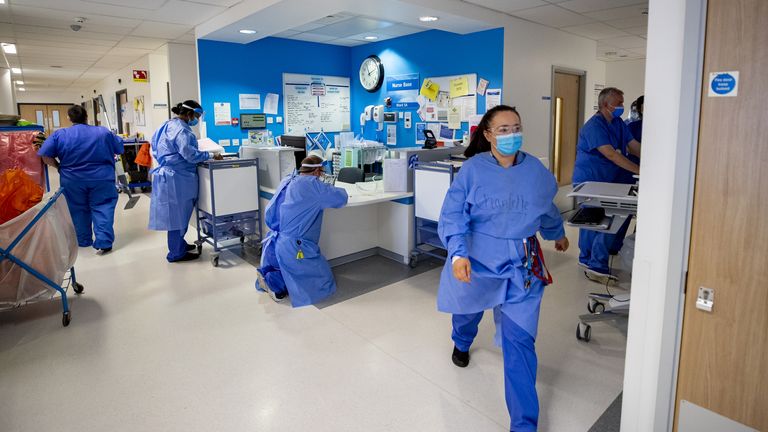New Delhi: A large English coronavirus prevalence study on Wednesday found that completely vaccinated people have an around 50 percent to 60 percent reduced risk of infection from the Delta coronavirus variant, including those who are asymptomatic
According to the researchers at Imperial College London “people who reported receiving two vaccine doses were half as likely to test positive for Covid-19, adjusting for other factors such as age, whether or not the people tested had Covid-19 symptoms
During the study, researchers had focused on those who had Covid-19 symptoms, effectiveness rose to around 59 percent, which covered a period when the Delta variant completely displaced the previously dominant Alpha variant.
“This was not surprising or worrying, given that PHE estimates were based on those who have symptoms and get tested, while the Imperial study is designed to pick up more people,” The researchers said.
Paul Elliot, an epidemiologist at imperial college and who leads the study said that “We are looking at effectiveness against infection amongst a random sample of the general population, which includes asymptomatic individuals. Even those who had symptoms in the study might not have got a test otherwise. So again, it’s a different bunch of people.”
The study found that the link between infections and hospitalizations, which had previously weakened, had started to re-converge, a move that coincides with the spread of Delta among younger people who may not be fully vaccinated.
PHE has said that “The Delta carries a higher risk of hospitalization, though vaccines offer good protection against severe disease.”
The researchers said that “overall, the prevalence in unvaccinated people was 1.21 percent, three times higher than the 0.4 percent prevalence in fully vaccinated people, and that the viral load among people with Covid-19 was also lower in vaccinated people.”
The latest survey, conducted between June 24 and July 12, covers the time ahead of a peak in daily reported infections on July 17 and found that the rise was fuelled by a spread in younger people.
The researchers were presenting the latest findings of Imperial’s React-1 prevalence survey, which showed there was a fourfold increase in infections in a month to reach 1 in 160 people in England.

